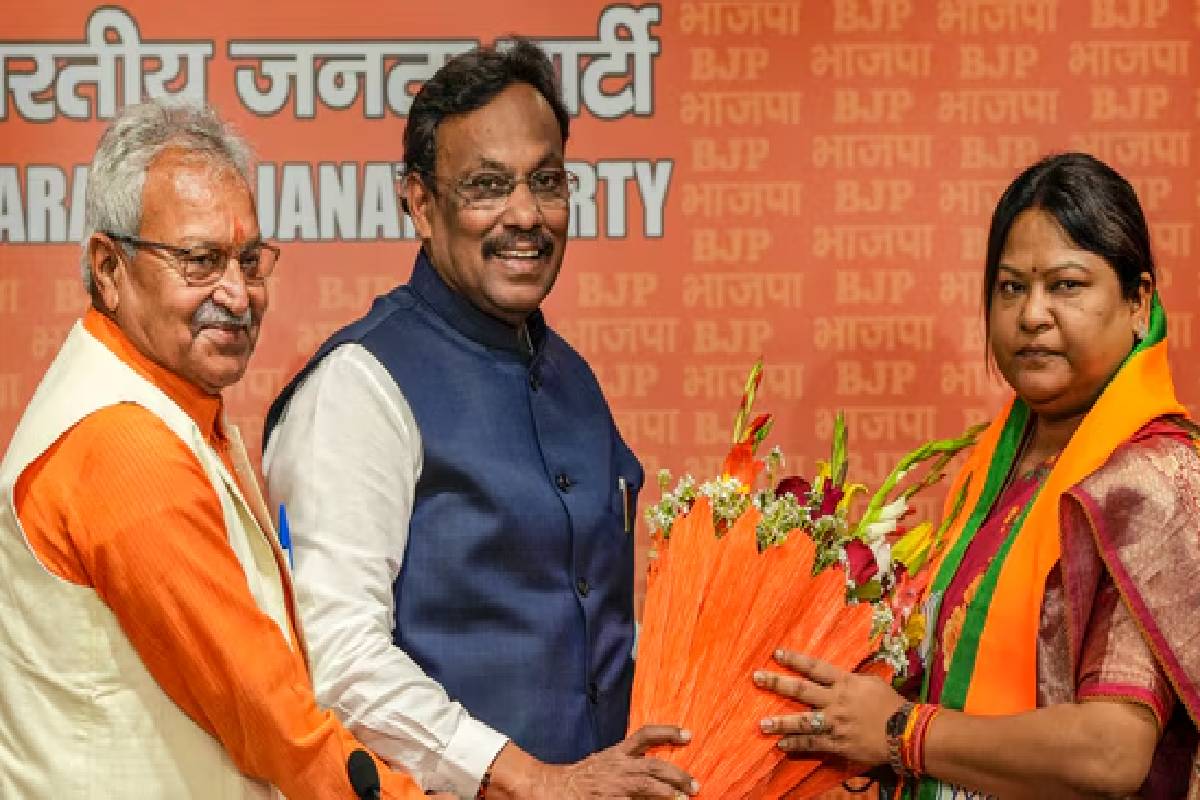NEW DELHI: Sita Soren, the daughter-in-law of Jharkhand Mukti Morcha (JMM) patriarch Shibu Soren, made a dramatic political move by resigning from the party and joining the Bharatiya Janata Party (BJP) along with her daughters. Her departure from the deeply-rooted JMM, just ahead of the crucial 2024 elections, signals a significant shift in the state’s political landscape.
Sita’s transition from a longstanding member of the JMM to the BJP reflects her discontent within the party and the Soren family. Despite serving as a three-time MLA over 15 years in the JMM, she grew disillusioned over time, feeling marginalized within the party and family hierarchy.
ALSO READ: Sajjad Lone blames 1987 rigged election for terrorism
Her dissatisfaction stemmed from perceived neglect and isolation, despite her status as the widow of Durga Soren, a prominent Jharkhand movement figure and potential party leader. Sita openly criticized the JMM’s deviation from its core values under the leadership of her brother-in-law, Hemant Soren, citing allegations of corruption and mismanagement.
Accompanied by her daughters, Sita formed the ‘Durga Soren Sena’ to combat corruption and exploitation in Jharkhand. Her decision to join the BJP signifies her quest for change and alignment with a new political vision for the state.
ALSO READ: Former Indian Ambassador Sandhu joins BJP, may contest Amritsar
However, Sita’s move is not devoid of controversy, as she faces legal challenges, including bribery allegations during the 2012 Rajya Sabha elections. Despite these hurdles, she remains resolute in reshaping her political narrative and revitalizing her career within a party that resonates with her ideals.
As Sita embarks on this new political journey, her defection to the BJP adds intrigue to Jharkhand’s political landscape. With the 2024 elections looming, her decision could have profound implications for both parties and reshape the state’s political dynamics.









